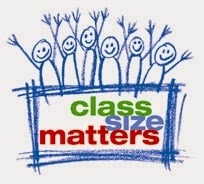Links to learn more: Standardized testing is ruining our schools
A local parent group recently sponsored a screening of the documentary, Standardized - Lies, Money & Civil Rights: How Testing is Ruining Education. Watch the trailer here. They asked me to share the information below for follow up reading. I was happy to help.
Dr. Yong Zhao explains why the US shouldn't aim to copy China's educational system. He is an internationally known scholar, author, and speaker. His works focus on the implications of globalization and technology on education. He has designed schools that cultivate global competence, developed computer games for language learning, and founded research and development institutions to explore innovative education models. He has published over 100 articles and 20 books.
http://www.huffingtonpost.com/timothy-d-slekar/post_1639_b_816041.html
Did you know that no high-performing nation gives annual tests or uses test scores to evaluate teachers? Read more here.
If our schools force teachers to focus on data, do our kids become faceless data points based on isolated skills?
* Policymakers should carefully weigh the efficacy of class-size policy against other potential uses of funds. While lower class size has a demonstrable cost, it may prove the more cost-effective policy overall.
Why do small classes work? She writes:
And don't believe the class sizes found on-line. Ask your kids to count the number of kids in their classes. Even in the best districts many classes have 27+ kids per class. Plus, class sizes vary if scheduling is based on math level. This can result in advanced math students having smaller classes all around, while other students end up in much larger classes.
Great school leaders care and should be open to these conversations. Let's give it a try.
United Opt Out:
"The central mission of United Opt Out is to eliminate the threat of high-stakes testing in public K-12 education. We believe that high-stakes testing is destructive to children, educators, communities, the quality of instruction in classrooms, equity in schooling, and the fundamental democratic principles on which this country is based.
We are inundated with the false narrative that our public schools have completely and totally failed. But continued public opinion surveys and reliable data from the annual National Assessment of Educational Progress (NAEP) show two things: one, that confidence in our community schools is still very high and two, our achievement as a nation is higher than ever in all subgroups.
High-stakes testing is not supported by educational research as a measure of student learning and progress. It is, however, the crucial information needed by groups who seek to privatize public education and run it for-profit.
Lip service is certainly paid to students, teachers, and parents about the necessity of a good education. Yet, predominant reforms ignore the wishes of those working within our schools. Reforms also ignore the overwhelming evidence against test-driven mandates."
How to protect our kids:
"The central mission of United Opt Out is to eliminate the threat of high-stakes testing in public K-12 education. We believe that high-stakes testing is destructive to children, educators, communities, the quality of instruction in classrooms, equity in schooling, and the fundamental democratic principles on which this country is based.
We are inundated with the false narrative that our public schools have completely and totally failed. But continued public opinion surveys and reliable data from the annual National Assessment of Educational Progress (NAEP) show two things: one, that confidence in our community schools is still very high and two, our achievement as a nation is higher than ever in all subgroups.
High-stakes testing is not supported by educational research as a measure of student learning and progress. It is, however, the crucial information needed by groups who seek to privatize public education and run it for-profit.
Lip service is certainly paid to students, teachers, and parents about the necessity of a good education. Yet, predominant reforms ignore the wishes of those working within our schools. Reforms also ignore the overwhelming evidence against test-driven mandates."
How to protect our kids:
How to opt out in Pennsylvania:
Dr. Yong Zhao explains why the US shouldn't aim to copy China's educational system. He is an internationally known scholar, author, and speaker. His works focus on the implications of globalization and technology on education. He has designed schools that cultivate global competence, developed computer games for language learning, and founded research and development institutions to explore innovative education models. He has published over 100 articles and 20 books.
These articles/posts will open your eyes about the real purpose of standardized tests, the dangers of the common core state standards/PA core standards, and the danger corporate education reform is posing to our kids, our schools & democracy:
http://dianeravitch.net/2013/11/16/anthony-cody-10-reasons-to-worry-about-the-common-core-standards/
Did you know that no high-performing nation gives annual tests or uses test scores to evaluate teachers? Read more here.
President Obama's kids go to this school, and this is their philosophy:
" We seek academically talented students of diverse cultural, racial,
religious, and economic backgrounds. We offer these students a rich and
rigorous interdisciplinary curriculum designed to stimulate creative
inquiry, intellectual achievement and independent thinking in a world
increasingly without borders. We encourage these students to test
themselves in athletic competition and to give expression to their
artistic abilities. We draw strength from silence—and from the power of
individual and collective reflection. We cultivate in all members of
our community high personal expectations and integrity, respect for
consensus, and an understanding of how diversity enriches us, why
stewardship of the natural world matters, and why service to others
enhances life. Above all, we seek to be a school that nurtures a genuine
love of learning and teaches students "to let their lives speak."
What, no data driven instruction? Check out the website. Lots of focus on small class sizes, an energetic, fun environment, students as whole human-beings, providing a supportive and joyful environment, building self-worth and confidence. Hmmm...
How about asking our school leaders to do this one thing that is proven to help increase student learning?
Chose the best answer from the choices below:
A. Common assessments
B. Benchmark tests
C. Data analysis
D. Lower class sizes
You guessed it... Lower class sizes. The information below is from this Washington Post article on class size.
"The evidence suggests that increasing
class size will harm not only children’s test scores in the short run,
but also their long-run human capital formation. Money saved today by
increasing class sizes will result in more substantial social and
educational costs in the future.
* The payoff from class-size
reduction is greater for low-income and minority children, while any
increases in class size will likely be most harmful to these
populations.* Policymakers should carefully weigh the efficacy of class-size policy against other potential uses of funds. While lower class size has a demonstrable cost, it may prove the more cost-effective policy overall.
Why do small classes work? She writes:
The mechanisms at work linking small classes to higher achievement include a mixture of higher levels of student engagement, increased time on task, and the opportunity small classes provide for high-quality teachers to better tailor their instruction to the students in the class.The research is there. Class size matters. Even the finest teachers are limited in what they can do when they have large classes."
And don't believe the class sizes found on-line. Ask your kids to count the number of kids in their classes. Even in the best districts many classes have 27+ kids per class. Plus, class sizes vary if scheduling is based on math level. This can result in advanced math students having smaller classes all around, while other students end up in much larger classes.
Great school leaders care and should be open to these conversations. Let's give it a try.












Comments
Post a Comment